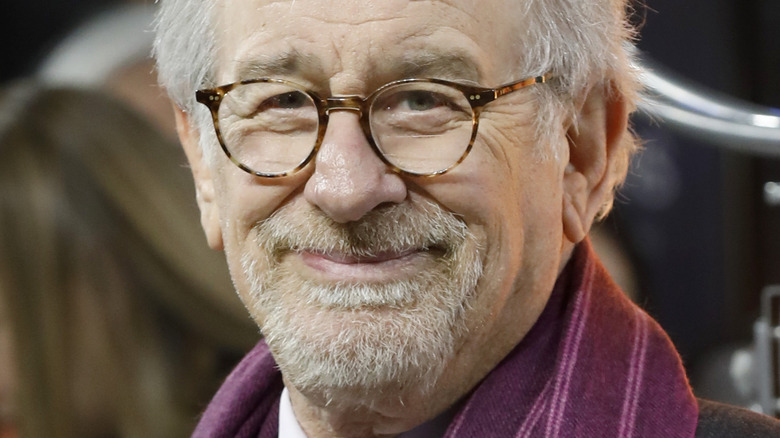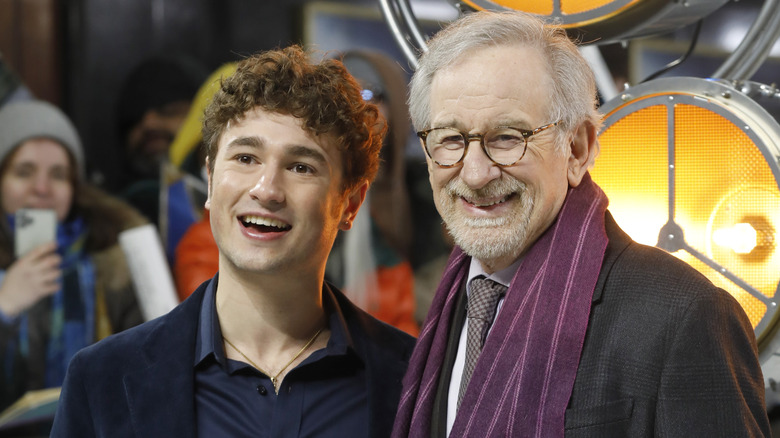Why Steven Spielberg Finally Made The Fabelmans
Steven Spielberg has always refracted his filmmaking sensibilities through the experience of childhood. Perhaps his most universally celebrated film, "E.T.," does tell the story of the American government encountering an alien lifeform, but it does so from the point of view of the child who befriends it. But it took Spielberg more than half a century of filmmaking to finally put the childhood he'd always hidden with smoke, mirrors, and aliens to screen.
In 2022, the auteur returned with "The Fabelmans," a semi-autobiographical movie that depicts a lightly fictionalized version of Spielberg's adolescence. Gabriel LaBelle stars as Sammy Fabelman, a teenager who turns to making movies, retreating into the fantasies — and harsh realities — of the camera as his real life becomes increasingly difficult to navigate. Paul Dano co-stars as Burt Fabelman, Sammy's brilliant but distant father, and Michelle Williams steals the screen as Sammy's mother, Mitzi. Spielberg also co-wrote the script alongside Tony Kushner.
Sammy Fabelman's experiences line up with Spielberg's biography. A young Sammy makes films as his parents' relationship deteriorates and his family moves from Ohio to Arizona and then California. He is bullied at school for being Jewish. Ultimately, the emotional honesty paid off. "The Fabelmans" stunned critics and audiences alike, and it has been nominated for seven Academy Awards, including best picture, best director, and best screenplay (via Variety). On the heels of those nominations, Spielberg opened up about why it took him so long to make his most personal film yet.
The loss of his parents drove Spielberg to make The Fabelmans
Speaking to Deadline in the wake of multiple Oscar nominations for "The Fabelmans," writer and director Steven Spielberg talked about why it took so long for him to make the most personal film of his career. Simply put, he wasn't prepared to do so until now. Though his co-writer Tony Kushner had encouraged him to reflect on his childhood, Spielberg admitted, "I had to be ready to tell the story and I wasn't for a long time and for a lot of reasons."
For his entire career, Spielberg has preferred to reference his childhood through the fantastical and escapist fiction of genre film, which has allowed him to imbue his films with personal stakes while still keeping his true history at arm's length. Said the director, "I guarded my privacy jealously through the smokescreen of science fiction, adventure, or historical fiction." However, all of that changed in the wake of his parents' deaths. Spielberg first lost his mother in 2017 and his father three years later in 2020. The rapid loss of both changed the director, himself in his early 70s at the time. "When you're orphaned, you don't know what that feels like until it happens," Spielberg said. "It's profound. It has profound consequences."
In revisiting his childhood with "The Fabelmans," Spielberg delivered not only a movie about filmmaking but also an exploration of what drives an artist to create. After a life in service of his art, Spielberg has more than earned that indulgence.

